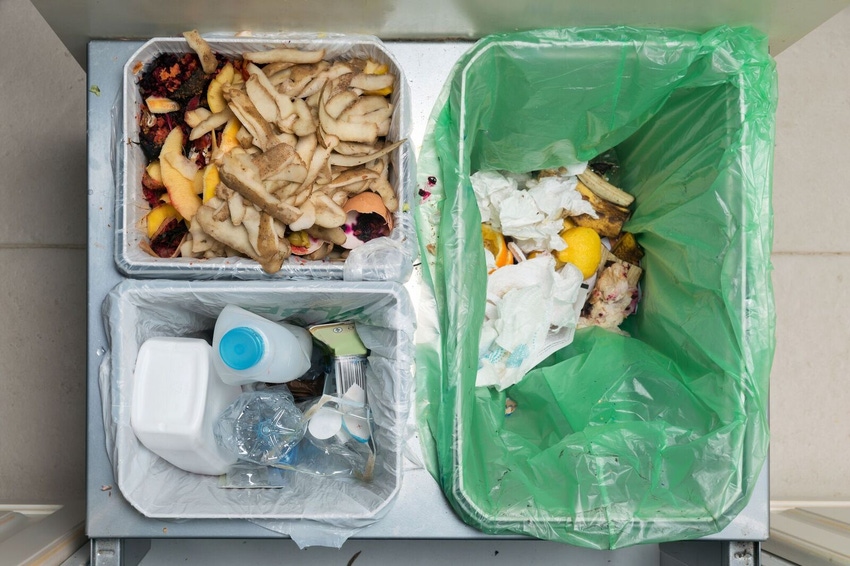The role of food rescue in slowing climate change.
April 9, 2020

Adam Kahn
The Natural Resources Defense Council reports that up to 40 percent of all food in the United States is wasted, even as 40 million Americans lack consistent access to adequate and nutritious food. Donation of useable food has palpable and obvious social benefits. Recovering (or rescuing) edible food from restaurants, groceries and institutions that would otherwise go to waste can help "bridg[e] the gap between abundance and need." Reduction in food waste (through food rescue or otherwise) will also yield big reductions in carbon emissions.
From an environmental regulatory perspective, managing food that has been deemed unsalable has traditionally been considered a solid waste problem. Four Northeastern states (Connecticut, Massachusetts, Rhode Island, Vermont) and California limit the disposal of "food waste" or other organics in conventional waste streams that go to landfills or waste-to-energy facilities. Getting usable food out of the waste stream, for the most part, satisfies most existing regulatory schemes, regardless of how it is done. However, these rules do not create a clear preference or incentive for "rescuing" food so that it can be eaten by people.
This is not to suggest that regulators are ignoring benefits of food waste reduction in setting solid waste policy. The United States Department of Agriculture and the U.S. Environmental Protection Agency have presented inverse pyramids of priorities for preventing or diverting wasted food; food rescue is No. 2, right after prevention of food waste at the production level. These efforts and similar efforts may be having some effect: In my home state of Massachusetts, the current draft Solid Waste Master Plan appropriately highlights the 60 percent increase in rescue of fresh and perishable food between 2010 and 2018. The nonprofit Rethink Food Waste Through Economics and Data (ReFED) has developed an impressive Food Waste Policy Finder that compiles ways in which food wastage can be reduced and an equally impressive Roadmap to identify cost-effective regulatory, policy and business solutions to reduce food waste. Outside of solid waste rules, food waste can be reduced by improving "sell by" or "use by" date labeling requirements, food handling practices and regulations, usage and waste tracking information, packaging and portion sizes, consumer and business education and donation-related tax incentives.
Food rescue and other forms of food waste reduction can also reduce greenhouse gas emissions. The Intergovernmental Panel on Climate Change has concluded that 8 to 10 percent of total anthropogenic carbon dioxide equivalent (CO2e) emissions result from food loss and waste. In 2011, the Food and Agriculture Organization of the United Nations (FAO) similarly found that food wastage accounted for 3.6 billion tons of CO2e, or as FAO put it, "if food wastage was a country, it would be the third largest emitting country in the world" (right after China and the U.S., and right before India and Russia). Of that figure, about 35 percent comes in the distribution and consumption phases of the food supply chain, which are the stages where food rescue comes into play. Similar statistics abound in other reputable publications.
So, what role can environmental law serve to help realize the climate benefits of food rescue, apart from continued improvements in solid waste policy?
Jurisdictions that regulate carbon emissions, or have carbon emission caps or reduction targets, should consider providing tradable credits for rescue of food or other beneficial reuse. This will be complicated, particularly in the absence of economy-wide regulation of carbon emissions. Nonetheless, an administrable system would create a new avenue to enable would-be producers of food waste to monetize their good deeds through tradable carbon-avoidance credits. As a first step to any of this, we should agree on a transparent and understandable standard for measuring the carbon impact from food rescue. The Food Loss and Waste Accounting and Reporting Standard is one potential example. Once a methodology is accepted, the carbon benefits of food waste reduction can be quantified and then rewarded.
Even in the absence of tradable credits, requiring carbon offsets in the form of food waste reduction could form part of a jurisdiction’s larger carbon reduction plan. For example, state and local regulatory authorities with mandates to minimize environmental impacts could require development projects (particularly those involving the food industry) to offset incremental greenhouse gas emissions through food waste reduction. Similarly, environmental regulators who retain the ability to consider supplemental environmental projects could consider food waste reduction as part of resolution of environmental enforcement actions.
These ideas will take time and collective will to put in place. But individual action does not need to wait; reducing food waste today will have carbon benefits today even if no one is measuring, regulating or rewarding it.
This article, which was written by Adam Kahn on December 11, 2019, is reprinted with permission of the American College of Environmental Lawyers.
Adam Kahn is a partner at Foley Hoag LLP and a board member of Lovin' Spoonfuls.
About Lovin' Spoonfuls | Presentation at the Food Recovery Forum at WasteExpo
Lovin' Spoonfuls is the largest food rescue agency in New England. Established in 2010, Lovin' Spoonfuls serves more than 40 cities and towns in Greater Boston, MetroWest and Hampden County and works with more than 235 partners. Lovin' Spoonfuls increases community awareness on topics related to food waste and hunger.
Lauren Palumbo, chief operating officer of Lovin' Spoonfuls, will be presenting "How to Efficiently Scale a Food Rescue Organization" at the Food Recovery Forum at WasteExpo, August 10-13, 2020, in New Orleans.
Dr. Stuart Buckner, President, Buckner Environmental Associates, LLC
Consultants in Organics Management & Food Waste Recovery
Conference Chair & Program Director for the Annual Food Recovery Forum & Organics Recycling Conference at WasteExpo
Dr. Buckner can be contacted at [email protected].
You May Also Like


